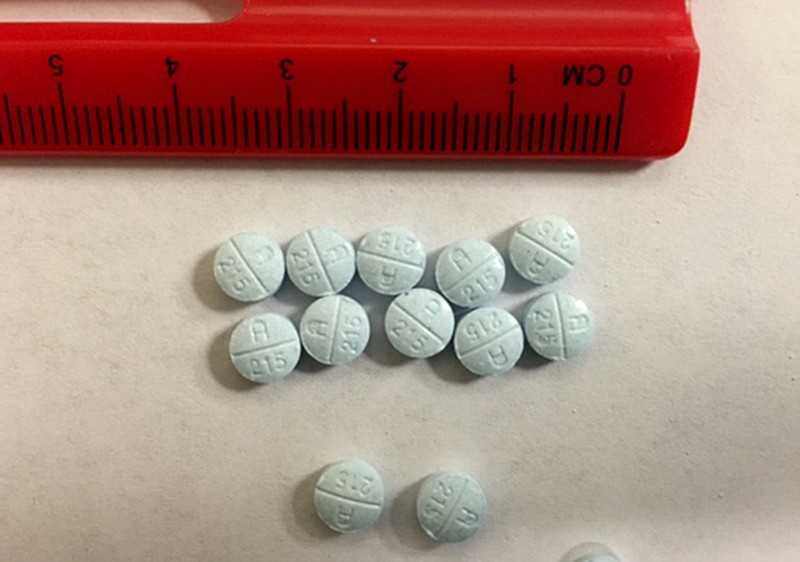Hearing of drug overdoses - especially fatal ones - in our community is bad enough.
Hearing of at least four - maybe five - overdose deaths in the span of one day is horrifying.
Chattanooga police on Tuesday evening issued a somber warning, noting, "the number of overdose deaths [they say four though a local anti-drug group says five] in a short period of time is indicative of extremely dangerous drugs being sold and used."
Police urged the public to be mindful of the warning and to call 911 quickly if they witness an overdose - and not leave that person alone.
Police have been close-mouthed about the deaths - perhaps too much so. While we understand these cases are still under investigation, the public still doesn't even know exactly what drug or drugs to be careful of. Nor do we know anything of the victims other than that they were all adult men and women in their mid-20s to mid-40s, located in "various" places.
Instead, even reporters have been forced to rely on Facebook for information. That's certainly no way to protect the public.
Just two weeks ago, something similar happened in Winchester, Tennessee, when over the course of a week, three people were found unresponsive after exposure to fentanyl. The police there issued a Facebook warning of a "dangerous drug" and said all three victims responded to naloxone - a drug also known by the brand name Narcan that reverses opioid overdoses.
The Winchester department warned of the synthetic opioid fentanyl, which is up to 100 times stronger than morphine, being found in marijuana in two of those cases. And officials there said other counties had reported fentanyl in marijuana, prescription pills and heroin.
"We encourage that individuals use caution because Fentanyl can be absorbed by [touch]," the Winchester department wrote on Facebook.
North Georgia, too, is seeing an uptick in overdoses: CHI Memorial's campus in Fort Oglethorpe treated five overdoses between June 1 and 4, and one was fatal. Four were heroin-related.
Here in Chattanooga, it's not clear if police have any suspects, or what those suspects might be charged with if they are caught.
Meanwhile, the Hamilton County Coalition, a law enforcement and community group aimed at reducing youth access to alcohol, tobacco and other illicit substances, on Wednesday cited five local overdose deaths in announcing a rapid response initiative to provide training on how to use Narcan to treat overdoses.
Already this year, there had been 99 drug overdoses with 23 deaths reported to police in Chattanooga as of May 9 - more than a month ago. In all of 2018, there were 246 overdoses with 105 deaths.
Erlanger, too, has seen a rise in cases. Comparing 2018 to 2019, the three months between March and May had a 20% increase in overdose-related visits, averaging about 95 cases a month, said Jeneen Carman, an Erlanger emergency services leader. Overdose-related visits to the Children's Hospital have remained the same, at about 20 cases per month.
How any eventual suspects are charged will make a difference.
Another high-profile drug overdose death occurred here in February of 2016. Many may remember the story of 24-year-old Logan Whiteaker who, after a decade of opiate addiction, graduated from Hamilton County Drug Court one day only to be found dead the next day from a heroin overdose.
Whiteaker had been the poster child for success. He'd found a construction job, passed 18 months of drug tests and begun a restitution plan for the thousands he owed in court fees. He told the judge: "I never thought I'd be here." The next day, he lay dead at a house in Red Bank with a hypodermic needle next to him and leftover heroin on the bathroom counter, according to a police report.
About four months later, federal prosecutors - federal, not state - charged three Chattanooga residents with conspiracy to distribute heroin in connection with his death. One of them - the actual dealer as opposed to the courier and another buyer who shared with Whitaker - had a long history with area police and Hamilton County courts, often involving drug sale charges.
Yet despite 18 jail bookings in five and a half years, Darius Jermaine Blakemore was never out of circulation on Chattanooga streets for more than a few months at a time, according to those bookings chronicled in the Times Free Press Right2Know database beginning in the fall of 2010. According to all those jail booking records, the longest time he could possibly have been off the streets despite those 18 jail bookings - many with multiple charges, including probation violations - was about eight months.
Then he was arrested in late 2016 by federal officials. Just over a year ago, our headline on May 22, 2018, read: "Heroin dealer gets 23 years." Blakemore pleaded guilty to conspiracy to distribute heroin resulting in death, distribution of heroin resulting in death, possession with intent to distribute cocaine, possession with intent to distribute crack and possession with intent to distribute heroin, according to a news release from the Department of Justice Eastern District of Tennessee. The courier and another buyer who passed the drug to Whitaker each were sentenced to 10 years, according to the Times Free Press archives.
Let's hope these newest deaths won't also be a sad story of justice's long wait and revolving door.
